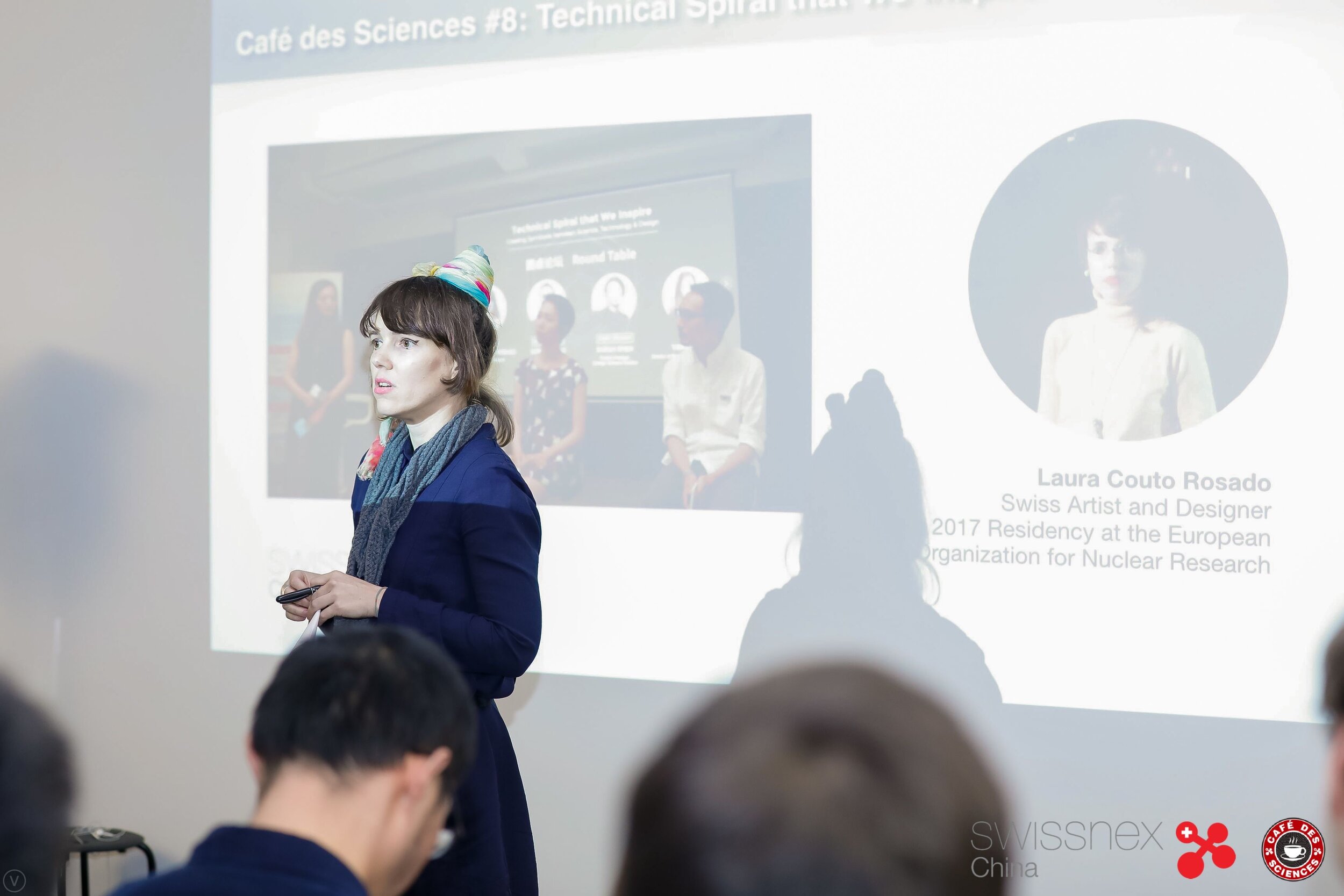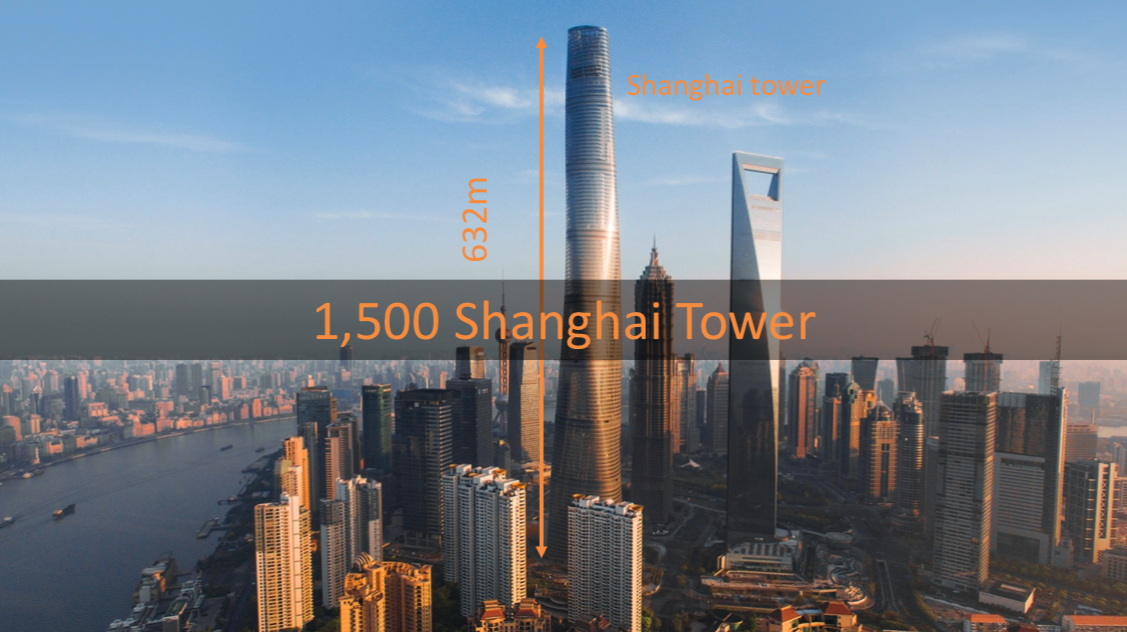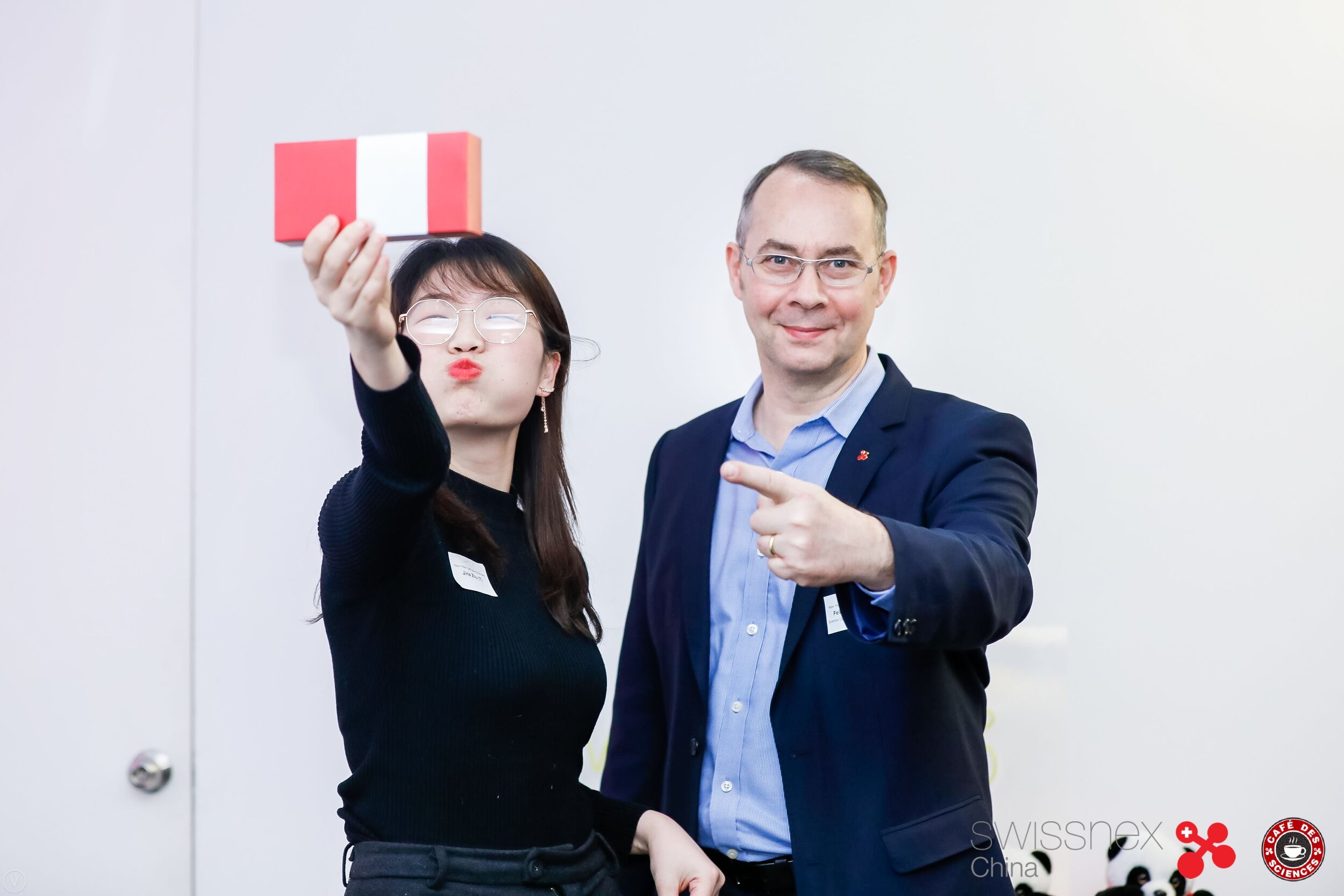Contribué par Junior Project Managers Innovation & Entrepreneurship
Afin de célébrer le mois de la francophonie, une édition spéciale Café des Sciences a été coorganisée avec d’autres pays et régions francophones le jeudi, 19 mars 2020. Cinq scientifiques et startups de Belgique, du Canada, de France, du Luxembourg et de Suisse ont été invités à présenter leurs projets et partager leur expertise sur l’intelligence artificielle dans la santé, l’environnement des animaux de compagnie, la géographie humaine et la technologie de capture de CO2.
La conférence s’est déroulée sous forme de webinaire dû à la situation actuelle avec le coronavirus. Plus de 150 personnes étaient inscrites.
Notre modérateur Gaétan Messin, attaché scientifique au consulat de France a fait un excellent travail. Selon lui, cet événement scientifique de la Francophonie est unique dans le monde.
A partir du haut vers la droite: Romain Dittgen (Luxembourg), Gaétan Messin (modérateur, France), Charles Bark (France), Prof. Louis Fradette (Canada), Dr. Felix Moesner (Suisse), Matt Morawski (Suisse), Pierre Lebrun (Belgique)
Notre premier intervenant – Pierre Lebrun de Belgique, nous a introduit sa société YiQi Care. YiQi Care développe des applications de haute technologie autour de l’environnement des animaux de compagnie en Chine. La société a pour objectifs, d’informer, d’éduquer et d’améliorer l’environnement de tous les animaux de compagnies en Chine. YiQi aide à la gestion de la communauté de la ville de Shanghai en proposant une boîte de récupération de déchets animaliers avec un conteneur intégré pour animaux de compagnie et un fournisseur automatisé de sacs de ramassage biodégradables verts. Cet équipement moderne a pour but de renforcer le tri des déchets, de réduire le plastique, de sensibiliser et responsabiliser la société et de préserver une activité urbaine saine.
Puis vint le tour du Prof. Louis Fradette de Canada. Il est Chef de département en ingénierie chimique à Polytechnique Montréal. En 2013, Louis Fradette a rejoint CO2 solutions Inc., en tant que directeur de la technologie et premier vice-président des procédés et de l’ingénierie. Lors de la conférence, Professeur Fradette nous a présenté son projet Valorisation Carbone Québec (VCQ), un projet unique de 30M$ visant à la démonstration industrielle de capture et de l’utilisation du CO2 pour la production de produits à valeur ajoutée. Durant la présentation, il nous expliqua la capture et l’utilisation du CO2 et comment VCQ crée différentes opportunités de partenariat.
Notre troisième conférencier est Charles Bark de France. Il est fondateur et CEO de HiNounou Intelligent Robot, une société AI BLOCKCHAIN Predictive Healthcare Data Platform qui aide les seniors à vivre plus longtemps, en meilleure santé et plus heureux à la maison. Avec une population vieillissante, le nombre de seniors en besoin de soins quotidiens et d’assistance augmente à grande vitesse. Pour cela, HiNounou propose un kit de soins à domicile, composé de différents appareils connectés afin d’assurer une surveillance quotidienne de la santé et une identification précoce des risques. La compagnie offre aussi le premier service d’assurance abordable en Chine dédié aux personnes âgées. En raison du coronavirus, HiNounou offre le premier anti-covid aid kit pour éviter la foule à l’hôpital et donner la priorité aux patients qui ont réellement besoin d’un soutien vital naissant.
Romain Dittgen de Luxembourg prit ensuite la parole. Chercheur postdoctoral à Hong Kong University of Science and Technology, Romain Dittgen est géographe et s’intéresse aux modalités de changement sociétal dans divers contextes en Afrique subsaharienne. Il nous a présenté un de ses projets, « (Ré)imaginer les espaces chinois en Afrique urbaine ». Il donna l’exemple d’un modèle d’une transplantation d’une nouvelle ville chinoise dans un contexte africain.
Et pour finir, notre dernier intervenant, Matt Morawski de Suisse, directeur du développement commercial et co-fondateur de Deep Cube SA, spécialisé dans l’IA pour l’outil d’aide au diagnostic des maladies de la peau. Matt nous a présenté Deep Cube et ses technologies IA pour des diagnostics de soins de santé en temps réel dans des domaines comme l’oncologie, la biologie, les neurosciences et l’ophtalmologie. Matt a représenté Deep Cube sur la scène internationale avec succès en remportant 2 prix à Shanghai pour Deep Cube: 1ère place pour la meilleure startup Suisse lors de la Pitching Night au CES Asia 2019 et 2ème place parmi 600 startups du monde entier lors de la Conférence et Compétition Mondiale AI (WAIC) 2019.
A la fin de la présentation, une session questions-réponses était mise en place afin de permettre une interaction entre le public et les intervenants.
Veuillez cliquer ici pour le lien de téléchargement de l'enregistrement du webinaire.
Café des Sciences – Edition spéciale de la Francophonie, était coorganisée par le consulat général de Belgique et la délégation générale Wallonie Bruxelles, le consulat général du Canada, le consulat général de France, le consulat général du Luxembourg et swissnex China. Nous tenons à exprimer nos remerciements et notre appréciation pour leur grand soutient dans la coorganisation de cet événement ! Nous remercions aussi le modérateur et les cinq conférenciers d’avoir partagé leurs expertises de grande valeur.































